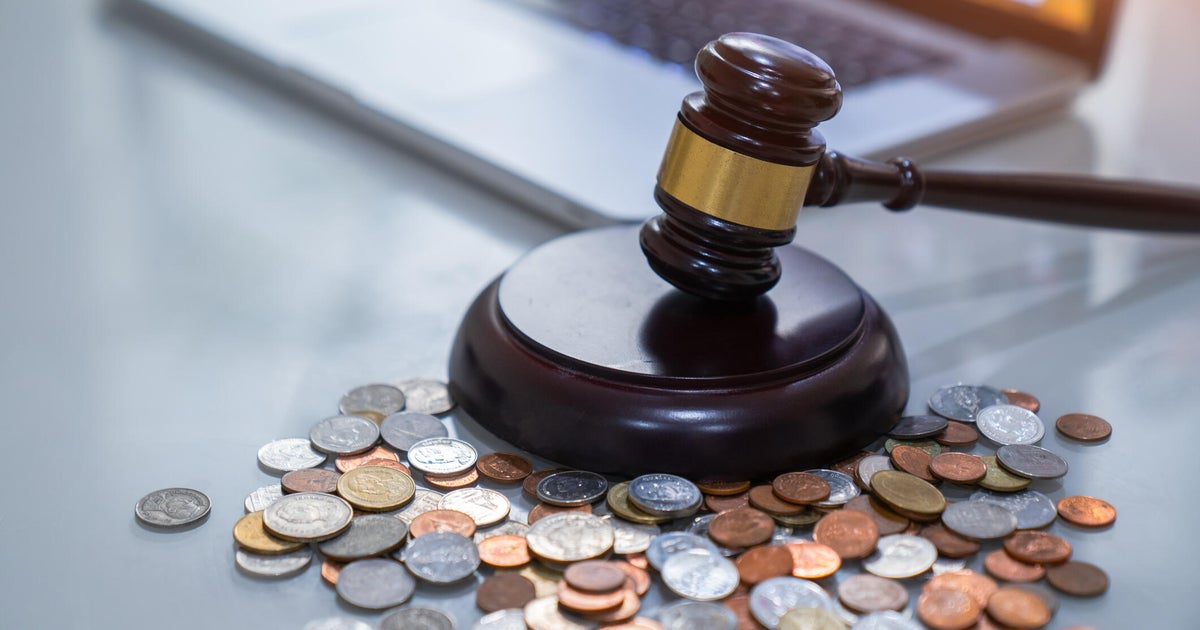What happens if you can't pay back a payday loan?
Payday loans are marketed as a fast fix for financial emergencies, offering quick cash — generally in amounts of $500 or less — to cover unexpected bills or expenses between paychecks. You borrow the money and the payment is due a couple of weeks later, along with the associated fees and interest. That can help you bridge the gap between your paychecks and financial needs when you don't have access to other borrowing options, but what starts as a temporary solution can quickly turn into a cycle of debt that's hard to escape. After all, between the sky-high interest rates and aggressive repayment terms, payday loans can turn a few hundred borrowed dollars into thousands of dollars owed in just a matter of months.
For example, the typical equates to paying an annual percentage rate (APR) of nearly 400%, according to the Consumer Financial Protection Bureau (CFPB). That makes the nearly 22% average rate on credit cards pale in comparison. And if you can't repay the money you borrowed by the due date, which many borrowers can't, you're often forced to roll it over, triggering more additional fees and interest. For those already living paycheck to paycheck, repaying these loans on time can be nearly impossible, especially when basic living costs like rent and groceries are also piling up.
If you've taken out a payday loan and find yourself unable to repay it on time, it can be incredibly tough to dig your way out. But while payday loan companies can be aggressive, you do have rights, and there are ways to take back control of your finances.
.
What happens if you can't pay back a payday loan?
To start, it's important to understand that payday lenders operate differently than traditional banks or credit card companies. Many require access to your checking account upfront, so if you miss a payment, they might attempt to withdraw the full amount due, plus fees, directly from your account. This can result in a cascade of overdraft charges from your bank and leave you without enough money for essentials. Here's what else typically happens if you can't pay a payday loan on time:
- Additional fees and interest: Every time you miss a payment or roll over the loan, the fees pile on. In some cases, borrowers end up paying more in interest and fees than they originally borrowed.
- Aggressive collection tactics: Payday lenders are notorious for their collection methods. While they are subject to federal and state laws (including the Fair Debt Collection Practices Act), some may use harassing phone calls, threats of legal action or repeated attempts to access your bank account.
- Damage to your credit: While many payday lenders don't report to major credit bureaus, some do. And if your account goes to collections, that debt could show up on your credit report and hurt your score.
- Lawsuits: In extreme cases, a lender may sue you in civil court for the unpaid debt. If they win, they could garnish your wages or levy your bank account, but that can only happen with a court judgment.
Despite the pressure payday lenders can apply, it's important to remember that you can't go to jail for failing to repay a payday loan. However, some unscrupulous lenders may still use scare tactics to suggest otherwise, so don't fall for it. And, there are also some strategies you can use to try and tackle what's owed to a payday lender — which could make it easier to get out of the debt cycle you're trapped in.
.
What debt relief options can help get rid of a payday loan?
If you're feeling overwhelmed and can't keep up with your payday loan payments, it may be time to consider other solutions. Here are some of the most effective strategies:
Debt consolidation
With good enough credit, you may be able to take out a loan with a lower interest rate to pay off your payday loan in full (as well as any other high-rate debts you want to get rid of). This lets you consolidate the debt into one monthly payment, usually at a much more manageable rate and with a longer repayment term.
Credit counseling
Credit counseling agencies can help you create a debt management plan that lowers the cost of your debts while streamlining your monthly payments. As part of this process, the credit counselor will try to negotiate lower interest rates and fees with your creditors. While not all payday lenders will agree to work with you on your debt, some will.
Debt settlement
In some cases, you can negotiate directly with the lender (or with the help of a debt relief company) to settle the payday loan for less than what you owe. Be aware, though, that your credit may take a hit, and there may be tax consequences if a large portion of the debt is forgiven.
Bankruptcy
If payday loans are just one part of a much bigger debt problem, filing for bankruptcy may be an option worth considering. Chapter 7 bankruptcy can discharge unsecured debts, including payday loans if you qualify. It's a serious step, but it can offer a clean slate for those with overwhelming financial burdens.
The bottom line
Falling behind on a payday loan can be scary, especially when lenders start applying pressure. But no matter how dire things feel, you do have options and you don't have to go through it alone. Reaching out for help from a certified credit counselor or a debt relief professional can be the first step toward breaking the payday loan cycle and building a healthier financial future.
Payday lenders count on borrowers feeling trapped and desperate. But don't get discouraged. Even if you can't pay back your loan right immediately, taking action now can help you reclaim your finances and peace of mind.




